Ai giải hộ em vs
2x-4x-5 > hoặc=0 với mọi x
Ai giải đc thì em xin cảm ơn
Chứng minh rằng đa thức sau ko phụ thuộc vào biến:
A=(x+2)^3 + (x-2)^3 + 2x(x^2 +12)
B=(1/3+2x)(4x^2-2/3x+1/9)-(8x^3-1/27)
Ai giải hộ em được bài này thì em xin cảm ơn ạ
ai có thể giúp mình giải bài này vs đc không mình đang cần rất gấp (làm chi tiết hộ mình nhé, xin cảm ơn)
Bài 4:
a, √3x+4−√2x+1=√x+33x+4−2x+1=x+3
b, √2x−5+√x+2=√2x+12x−5+x+2=2x+1
c, √x+4−√1−x=√1−2xx+4−1−x=1−2x
d,√x+9=5−√2x+4x+9=5−2x+4
Bài 5:
a, √x+4√x+4=5x+2x+4x+4=5x+2
b, √x2−2x+1+√x2+4x+4=4x2−2x+1+x2+4x+4=4
c, √x+2√x−1+√x−2√x−1=2x+2x−1+x−2x−1=2
d,√x−2+√2x−5+√x+2+3√2x−5=7√2x−2+2x−5+x+2+32x−5=72
Ví Dụ 1:
a, √2x−1=√2−12x−1=2−1
b, √x+5=3−√2x+5=3−2
c, √3x2−√12=03x2−12=0
d, √2(x−1)−√50=02(x−1)−50=0
Thu gọn
ai có thể giúp mình giải bài này vs đc không mình đang cần rất gấp (làm chi tiết hộ mình nhé, xin cảm ơn)
Bài 4:
a, √3x+4−√2x+1=√x+33x+4−2x+1=x+3
b, √2x−5+√x+2=√2x+12x−5+x+2=2x+1
c, √x+4−√1−x=√1−2xx+4−1−x=1−2x
d,√x+9=5−√2x+4x+9=5−2x+4
Bài 5:
a, √x+4√x+4=5x+2x+4x+4=5x+2
b, √x2−2x+1+√x2+4x+4=4x2−2x+1+x2+4x+4=4
c, √x+2√x−1+√x−2√x−1=2x+2x−1+x−2x−1=2
d,√x−2+√2x−5+√x+2+3√2x−5=7√2x−2+2x−5+x+2+32x−5=72
Ví Dụ 1:
a, √2x−1=√2−12x−1=2−1
b, √x+5=3−√2x+5=3−2
c, √3x2−√12=03x2−12=0
d, √2(x−1)−√50=02(x−1)−50=0
Bạn gõ bằng công thức trực quan để được giúp đỡ nhanh hơn nhé, chứ mình nhìn thế không dịch được (Nhấp vào biểu tượng chữ M nằm ngang)
tìm x biết:
a) (x+1)(2-x)-(3x+5)(x+2)= -4x2+2
b)2x2-5x-3=0
Ai giải được thì em xin cảm ơn ạ
những bài này chủ yếu là biến đổi rồi phân tích thành nhân tử thôi
ai có thể giúp mình giải bài này vs đc không mình đang cần rất gấp (làm chi tiết hộ mình nhé, xin cảm ơn)
Bài 4:
a, \(\sqrt{3x+4}-\sqrt{2x+1}=\sqrt{x+3}\)
b, \(\sqrt{2x-5}+\sqrt{x+2}=\sqrt{2x+1}\)
c, \(\sqrt{x+4}-\sqrt{1-x}=\sqrt{1-2x}\)
d,\(\sqrt{x+9}=5-\sqrt{2x+4}\)
Bài 5:
a, \(\sqrt{x+4\sqrt{x}+4}=5x+2\)
b, \(\sqrt{x^2-2x+1}+\sqrt{x^2+4x+4}=4\)
c, \(\sqrt{x+2\sqrt{x-1}}+\sqrt{x-2\sqrt{x-1}}=2\)
d,\(\sqrt{x-2+\sqrt{2x-5}}+\sqrt{x+2+3\sqrt{2x-5}}=7\sqrt{2}\)
Ví Dụ 1:
a, \(\sqrt{2x-1}=\sqrt{2}-1\)
b, \(\sqrt{x+5}=3-\sqrt{2}\)
c, \(\sqrt{3x^2}-\sqrt{12}=0\)
d, \(\sqrt{2}\left(x-1\right)-\sqrt{50}=0\)
Vd1:
d) Ta có: \(\sqrt{2}\left(x-1\right)-\sqrt{50}=0\)
\(\Leftrightarrow\sqrt{2}\left(x-1-5\right)=0\)
\(\Leftrightarrow x=6\)
ai có thể giúp mình giải bài này với đc không (giải chi tiết hộ mình nhé,xin cảm ơn)
Bài 4:
a, \(\sqrt{3x+4}-\sqrt{2x+1}=\sqrt{x+3}\)
b, \(\sqrt{2x-5}+\sqrt{x+2}=\sqrt{2x+1}\)
c, \(\sqrt{x+4}-\sqrt{1-x}=\sqrt{1-2x}\)
d, \(\sqrt{x+9}=5-\sqrt{2x+4}\)
Bài 5:
a, \(\sqrt{x+4\sqrt{x}+4}=5x+2\)
b, \(\sqrt{x^2-2x+1}+\sqrt{x^2+4x+4}=4\)
VD1 :
a,\(\sqrt{2x-1}=\sqrt{2}-1\)
b,\(\sqrt{x+5}=3-\sqrt{2}\)
c,\(\sqrt{3}x^2-\sqrt{12}=0\)
d, \(\sqrt{2}\left(x-1\right)-\sqrt{50}=0\)
VD2 :
a, \(\sqrt{2x+5}=\sqrt{1-x}\)
b, \(\sqrt{x^2-x}=\sqrt{3-x}\)
c, \(\sqrt{2x^2-3}=\sqrt{4x-3}\)
Bài 4:
a, \(\sqrt{3x+4}-\sqrt{2x+1}=\sqrt{x+3}\) (ĐK: \(x\ge\dfrac{-1}{2}\))
\(\Rightarrow\) \(\left(\sqrt{3x+4}-\sqrt{2x+1}\right)^2\) = x + 3
\(\Leftrightarrow\) \(3x+4+2x+1-2\sqrt{\left(3x+4\right)\left(2x+1\right)}=x+3\)
\(\Leftrightarrow\) \(4x+2=2\sqrt{6x^2+11x+4}\)
\(\Leftrightarrow\) \(2x+1=\sqrt{6x^2+11x+4}\)
\(\Rightarrow\) \(4x^2+4x+1=6x^2+11x+4\)
\(\Leftrightarrow\) \(2x^2+7x+3=0\)
\(\Delta=7^2-4.2.3=25\); \(\sqrt{\Delta}=5\)
Vì \(\Delta\) > 0; theo hệ thức Vi-ét ta có:
\(x_1=\dfrac{-7+5}{4}=\dfrac{-1}{2}\)(TM); \(x_2=\dfrac{-7-5}{4}=-3\) (KTM)
Vậy ...
Các phần còn lại bạn làm tương tự nha, phần d bạn chuyển \(-\sqrt{2x+4}\) sang vế trái rồi bình phương 2 vế như bình thường là được
Bài 5:
a, \(\sqrt{x+4\sqrt{x}+4}=5x+2\)
\(\Leftrightarrow\) \(\sqrt{\left(\sqrt{x}+2\right)^2}=5x+2\)
\(\Rightarrow\) \(\sqrt{x}+2=5x+2\)
\(\Leftrightarrow\) \(5x-\sqrt{x}=0\)
\(\Leftrightarrow\) \(\sqrt{x}\left(5\sqrt{x}-1\right)=0\)
\(\Leftrightarrow\) \(\left[{}\begin{matrix}\sqrt{x}=0\\5\sqrt{x}-1=0\end{matrix}\right.\Leftrightarrow\left[{}\begin{matrix}x=0\\x=\dfrac{1}{25}\end{matrix}\right.\)
Vậy ...
Phần b cũng là hằng đẳng thức thôi nha \(\sqrt{x^2-2x+1}=\sqrt{\left(x-1\right)^2}=x-1\); \(\sqrt{x^2+4x+4}=\sqrt{\left(x+2\right)^2}=x+2\) rồi giải như bình thường là xong nha!
VD1:
a, \(\sqrt{2x-1}=\sqrt{2}-1\) (x \(\ge\) \(\dfrac{1}{2}\))
\(\Leftrightarrow\) \(2x-1=\left(\sqrt{2}-1\right)^2\) (Bình phương 2 vế)
\(\Leftrightarrow\) \(2x-1=2-2\sqrt{2}+1\)
\(\Leftrightarrow\) \(2x=4-2\sqrt{2}\)
\(\Leftrightarrow\) \(x=2-\sqrt{2}\) (TM)
Vậy ...
Phần b tương tự nha
c, \(\sqrt{3}x^2-\sqrt{12}=0\)
\(\Leftrightarrow\) \(\sqrt{3}x^2=\sqrt{12}\)
\(\Leftrightarrow\) \(x^2=2\)
\(\Leftrightarrow\) \(x=\pm\sqrt{2}\)
Vậy ...
d, \(\sqrt{2}\left(x-1\right)-\sqrt{50}=0\)
\(\Leftrightarrow\) \(\sqrt{2}\left(x-1\right)=\sqrt{50}\)
\(\Leftrightarrow\) \(x-1=5\)
\(\Leftrightarrow\) \(x=6\)
Vậy ...
VD2:
Phần a dễ r nha (Bình phương 2 vế rồi tìm x như bình thường)
b, \(\sqrt{x^2-x}=\sqrt{3-x}\) (\(x\le3\); \(x^2\ge x\))
\(\Leftrightarrow\) \(x^2-x=3-x\) (Bình phương 2 vế)
\(\Leftrightarrow\) \(x^2=3\)
\(\Leftrightarrow\) \(x=\pm\sqrt{3}\) (TM)
Vậy ...
c, \(\sqrt{2x^2-3}=\sqrt{4x-3}\) (x \(\ge\) \(\dfrac{\sqrt{3}}{2}\))
\(\Leftrightarrow\) \(2x^2-3=4x-3\) (Bình phương 2 vế)
\(\Leftrightarrow\) \(2x^2-4x=0\)
\(\Leftrightarrow\) \(2x\left(x-2\right)=0\)
\(\Leftrightarrow\) \(\left[{}\begin{matrix}2x=0\\x-2=0\end{matrix}\right.\)
\(\Leftrightarrow\) \(\left[{}\begin{matrix}x=0\left(KTM\right)\\x=2\left(TM\right)\end{matrix}\right.\)
Vậy ...
Chúc bn học tốt! (Có gì không biết cứ hỏi mình nha!)
Chứng minh rằng đa thức sau ko phụ thuộc vào biến:
A=(x+2)^3 + (x-2)^3 + 2x(x^2 +12)
B=(1/3+2x)(4x^2-2/3x+1/9)-(8x^3-1/27)
Ai giải hộ em được bài này thì em xin cảm ơn ạ
Bạn ơi, hình như câu 1 sai đề bài. Bạn xem lại giùm mk nhá!
ai giải giúp em vs ạ
em xin chân thành cảm ơn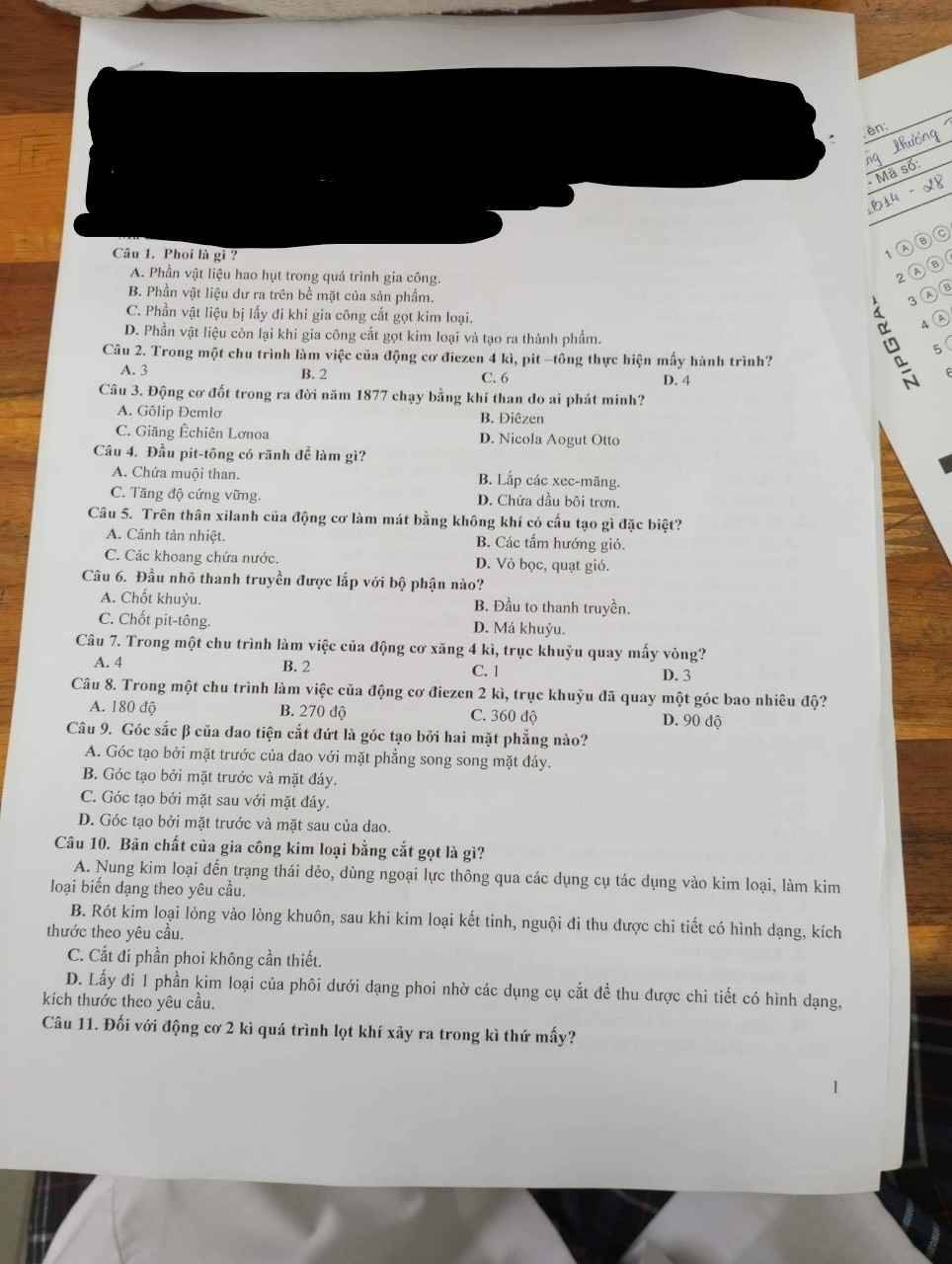
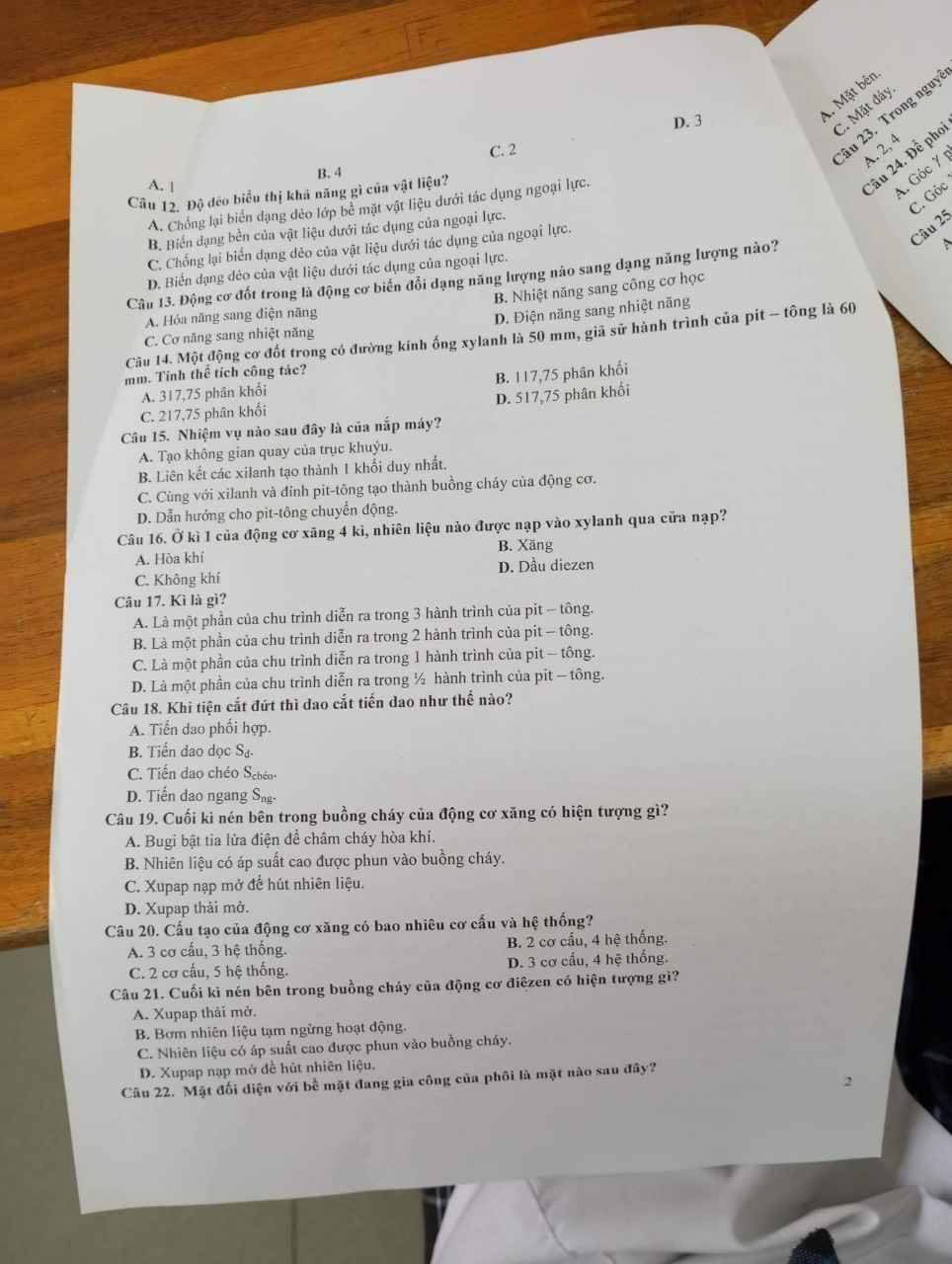
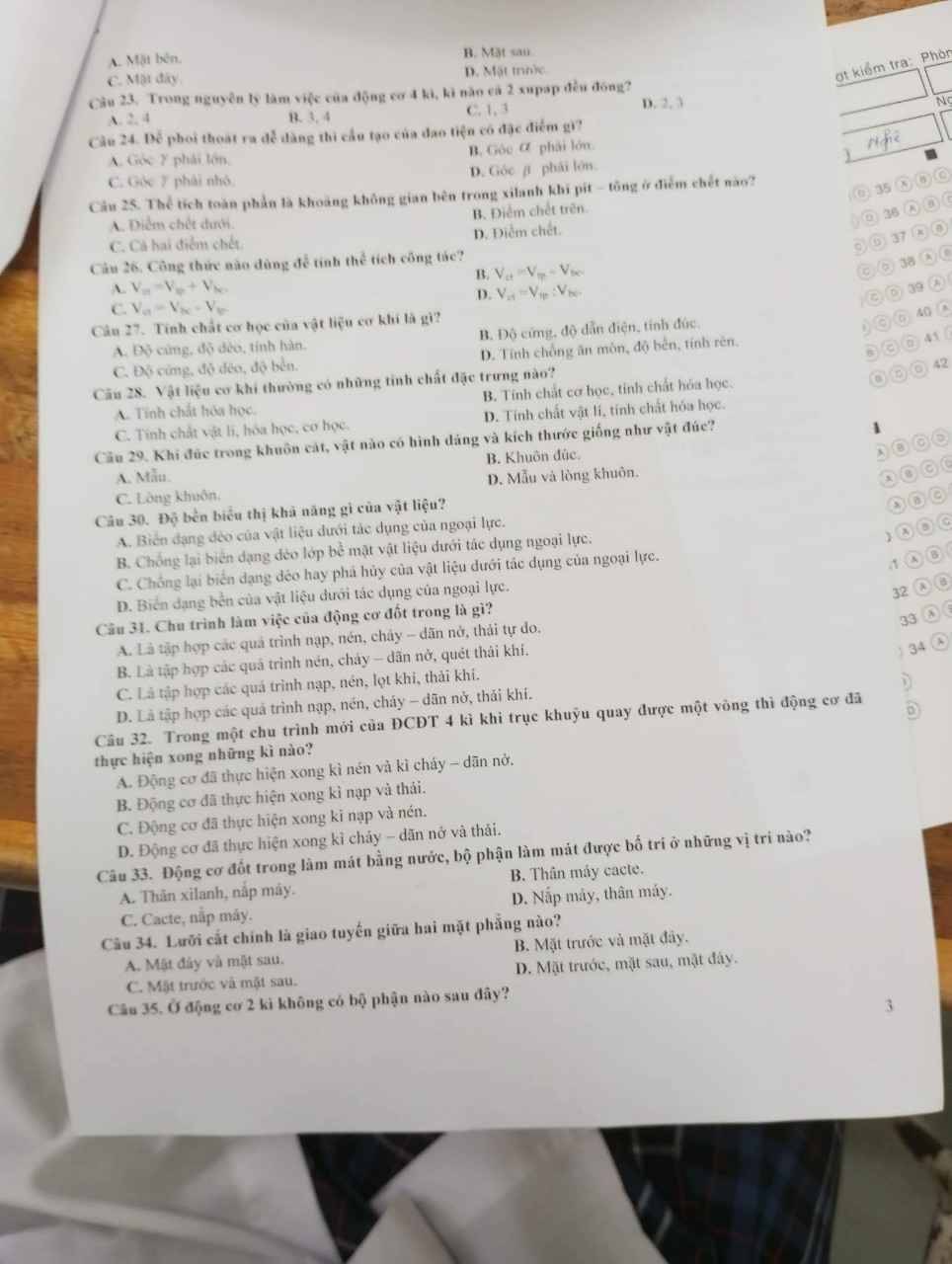
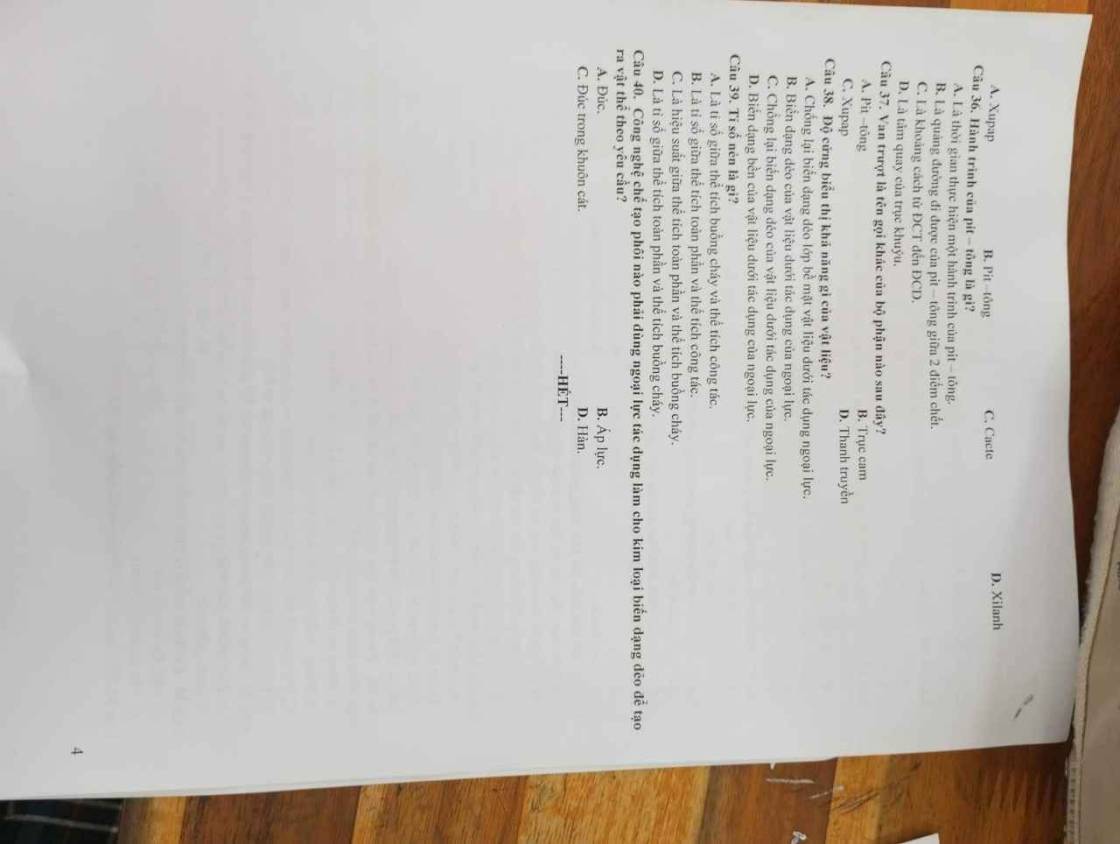
`2x+5y=11(1)`
`2x-3y=0(2)`
Lấy (1) trừ (2)
`=>8y=11`
`<=>y=11/8`
`<=>x=(3y)/2=33/16`
a) Ta có: \(\left\{{}\begin{matrix}2x+5y=11\\2x-3y=0\end{matrix}\right.\)
\(\Leftrightarrow\left\{{}\begin{matrix}8y=11\\2x-3y=0\end{matrix}\right.\Leftrightarrow\left\{{}\begin{matrix}y=\dfrac{11}{8}\\2x=3y=3\cdot\dfrac{11}{8}=\dfrac{33}{8}\end{matrix}\right.\)
\(\Leftrightarrow\left\{{}\begin{matrix}x=\dfrac{33}{16}\\y=\dfrac{11}{8}\end{matrix}\right.\)
Vậy: Hệ phương trình có nghiệm duy nhất là \(\left\{{}\begin{matrix}x=\dfrac{33}{16}\\y=\dfrac{11}{8}\end{matrix}\right.\)
b) Ta có: \(\left\{{}\begin{matrix}4x+3y=6\\2x+y=4\end{matrix}\right.\)
\(\Leftrightarrow\left\{{}\begin{matrix}4x+3y=6\\4x+2y=8\end{matrix}\right.\Leftrightarrow\left\{{}\begin{matrix}y=-2\\2x+y=4\end{matrix}\right.\)
\(\Leftrightarrow\left\{{}\begin{matrix}2x-2=4\\y=-2\end{matrix}\right.\Leftrightarrow\left\{{}\begin{matrix}2x=6\\y=-2\end{matrix}\right.\Leftrightarrow\left\{{}\begin{matrix}x=3\\y=-2\end{matrix}\right.\)
Vậy: Hệ phương trình có nghiệm duy nhất là (x,y)=(3;-2)
`b)4x+3y=6(1)`
`2x+y=4<=>4x+2y=8(2)`
Lấy (1) trừ (2) ta có:
`y=-2`
`<=>x=(4-2y)/2=3`
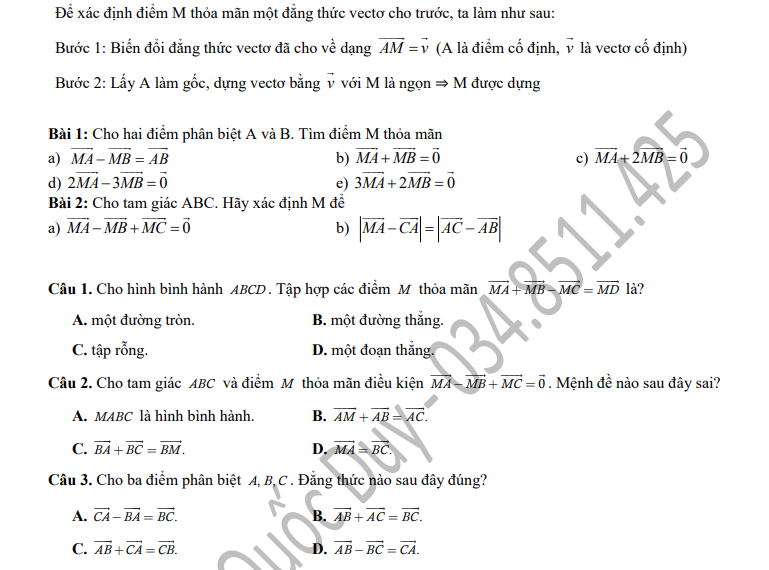 ai giúp em với ạ :<< em đang cần gấp lắm, giải hộ em 2 bài thì càng tốt ạ, em xin chân thành cám ơn
ai giúp em với ạ :<< em đang cần gấp lắm, giải hộ em 2 bài thì càng tốt ạ, em xin chân thành cám ơn